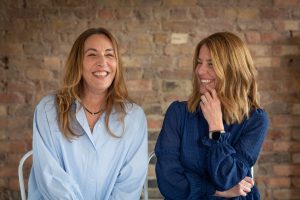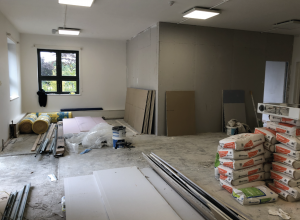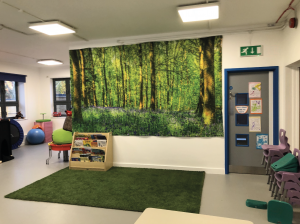by Ali Durban, Co-Founder Gesher School.
With the constant merry-go-round of Education Ministers and no appointment of a SEND minister since Kelly Tolhurst, we have been looking at what has progressed with the Green Paper since its submission in July. The answer is not much – other than an exchange in the form of a letter to current Minister of Education MP Robert Halfon, (and former Chair of the Education Select committee) from former Minister of Education, Kit Malthouse who writes:
‘We are proposing to establish local SEND and AP partnerships. These partnerships would be responsible for delivering a local inclusion plan which sets out the provision that will be made available in line with the national standards.’
To be clear, the Children and Families Act 2014 is the national standard (as opposed to a local inclusion plan), it already sets out a legal duty on LAs to secure and maintain Special Educational Provision through an EHCP. If provision is specified and quantified properly in an EHCP and the general principles of section 19 upheld (the need for the LA to have regard for what will help the child or young person to achieve the best possible educational and other outcomes), then an inclusion plan is not necessary.
What does need to be established is a clear accountability framework. Local Authorities need to be held to account when they do not uphold the legal standard (namely the Children and Families Act). At present the only setting for this is tribunal. It can take parents years to reach tribunal level, and the journey to get there is arduous, exhausting and often quite traumatic. Shockingly, around 95% of tribunals are upheld. This stark figure reflects that one of the biggest weaknesses of the system is in fact Local Authorities not doing what they should do legally. Establishing ‘new partnerships’ to deliver what is already written in statute will without doubt add another layer of delay to families trying to achieve the appropriate provision and outcomes for their child.
Tragically the human cost in all of this is the child or young person, who is at this point often in crisis.
Kit Malthouse goes on to write ‘The local inclusion plan will inform the tailored list of settings from which parents and carers are able to choose provision where their child requires an education, health and care plan (EHCP). The expectation is that all schools on the list will be settings that can meet the child’s special educational needs as identified in their EHC needs assessments. This aims to give parents and carers clarity on what is available locally which may still include mainstream, special, independent, or out of borough provision. Our intention is that this will lead to greater transparency about what is available for children and young people in their local school and greater clarity about how it can be provided. We also aim for this to improve the choice offered to parents and carers by suggesting options they may not have otherwise considered’.
This ambiguous statement shows a deep lack of knowledge of the SEND system. It infers freedom of choice.
However, choice is something that many families of children with SEND have never had.
The tailored list that Mr Malthouse refers to already exists in the form of a local offer. This list is drawn up by the Local Authority and typically based on cost. It does not and could not list a school to meet each and every need because:
● There is a lack of provision across the UK and the quality can differ hugely between LAs. Figures obtained by the newspaper ‘Schools Week’ show that over half of special schools had more pupils on roll than the number commissioned by their council. This was a 15% rise from 2017-18. There simply isn’t enough provision in-borough or nationally to meet need.
● Much of the provision comes out of the independent sector. In order to make the local offer list, a school must agree to section 41 – reciprocal duty to co-operate with the local authority on arrangements (admissions); this means that LA’s loosely control admissions and could see a school end up with a very mixed and challenging cohort of children. For this reason, many independent schools choose not to be part of the local offer.
There is no indication of what will happen if there isn’t an appropriate school on the list. Will parent’s once again need to battle to reach a tribunal to access the provision they need, whilst, once again, (same story here…) the child is left in crisis?
There is no mention in Kit Malthouse’s letter of placing the child and their needs at the centre of decision-making. A true local inclusion plan would see a timely and thorough multi-disciplinary assessment, followed by the family and LA working together to find the right placement with the child’s needs at the centre of all decision-making.
The reality is a 2-3 year wait for a full assessment, which is often not accurate because there is a vested interest to keep ‘need’ to a minimum (if at all) in order that there is less of a requirement to procure an EHCP and LA spend. When it comes to placement, the LA’s decision-making is based on budget and very often they will write “mainstream school” or the next cheapest placement in Section I.
Kit Malthouse’s letter highlights the disparity between what the central Government thinks inclusion is, versus the reality of what children, young people and their families face.
We know the system is broken. Report after report after report has evidenced that children with SEND and their families are being consistently damaged and failed by the system. Much of it might be legally questionable. The proposed changes in the Green Paper continue to raise significant concerns as to the future of SEND provision.
What we need is a long-term plan for education, designed with those who bring their lived experience to a collaborative and inclusive process. We need to take the 7000+ responses from the Green paper review, analyse and publish the responses, as Tania Tiororro of Special Needs Jungle recommends. She also writes:
‘DELAY further plans for improvement, DITCH the Green Paper in its current form and PUBLISH a straight analysis of the consultation as soon as possible
And perhaps most importantly, we need someone bold and brave who is willing to make real change and for once, put this group of children and young people and their needs first.


 the educational market, we have been excited to develop the design principles for the school.
the educational market, we have been excited to develop the design principles for the school.
